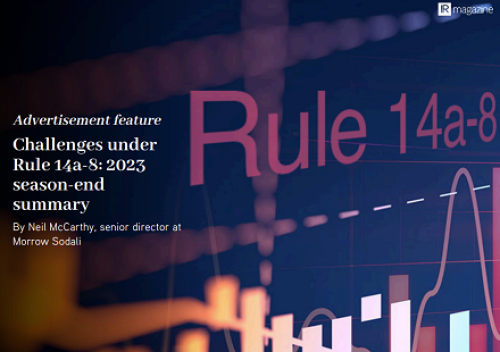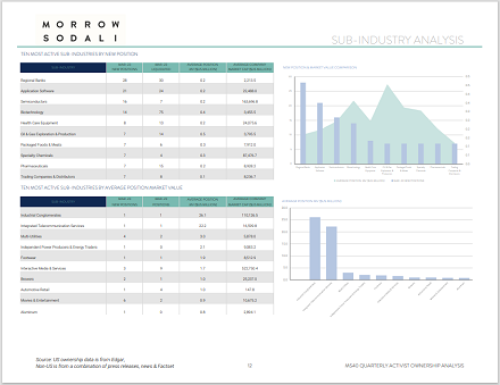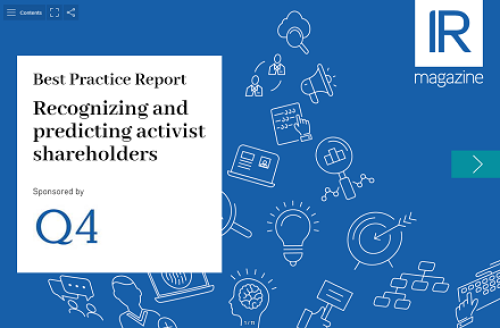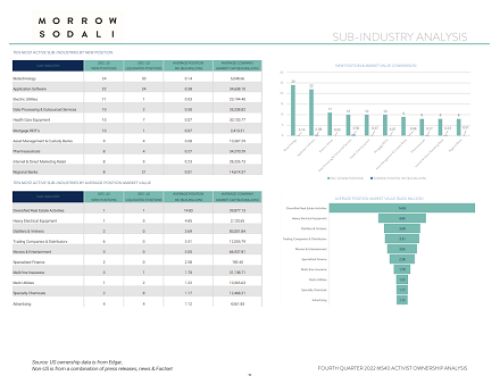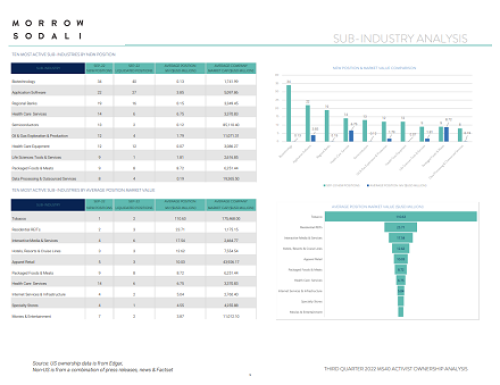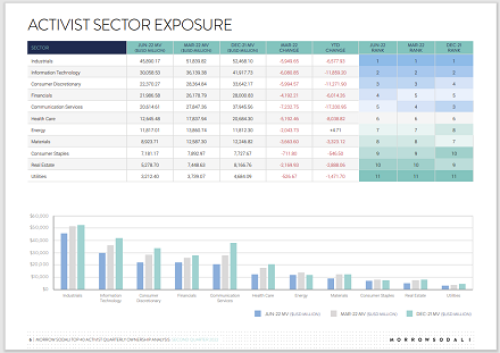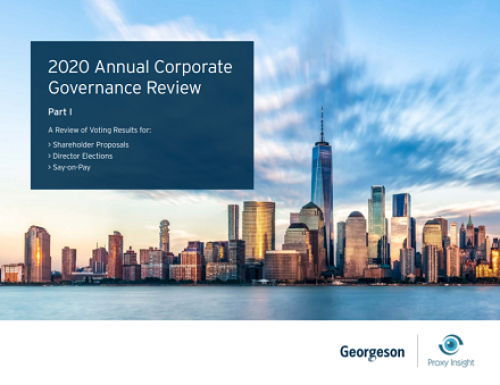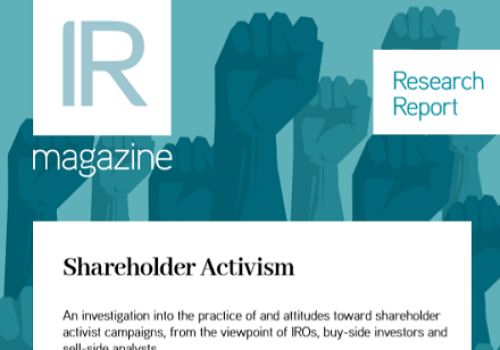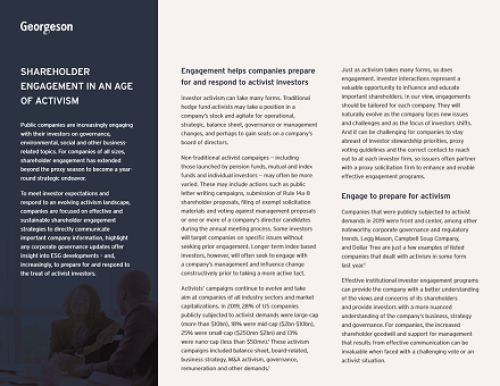In a rising market environment, activist investors still seemed to dominate the business news in 2017. It was a year in which major corporations like Procter & Gamble (P&G) and Arconic faced – and largely lost – high-profile activist campaigns, while companies including ExxonMobil discovered that normally ‘management-friendly’ institutional fund managers put forward and supported ESG-related proxy proposals.
This activity shows no sign of abating in 2018 and IR professionals at both large and small-cap companies should ramp up their proactive shareholder engagement and hone their strategic message for creating long-term value. Expect activists to become more aggressive and more amenable to mounting major retail-oriented campaigns, while traditionally pro-management investors will become more vocal on issues such as ESG – and less reliant on proxy advisory firms.
Second-stage activism
In recent times, activists targeted companies they perceived to be underperforming and were frequently able to reach settlements with targets without having to resort to fully fledged proxy fights. In the past year, however, equities have hit new highs while some of these companies have lagged the market, even after agreeing to adopt ‘value-enhancing’ strategies.
In 2018 some of the same activists that settled for board seats and a strategic review will likely become emboldened by their past victories and push hard for more dramatic changes, such as replacing the CEO or management. Alternatively, new activists that were not involved in the earlier settlements may step up and demand more drastic action to enhance shareholder value.
Reaching out to retail
IR professionals take note: retail shareholders are increasingly voicing their concerns through their proxy vote. Traditionally, activists tended to avoid proxy campaigns targeted toward companies with large retail shareholder components. The costs of reaching thousands of retail holders was considered prohibitive, and these investors were often deemed to be loyal to the company and management.
But 2017 saw the most expensive proxy fight ever: Trian’s contest against P&G, which is estimated to have cost both sides more than the indicated $60 mn. This contest is likely a foreshadowing of more expensive retail-oriented campaigns to come, particularly because technology has made it easier to get the attention of retail shareholders via content such as videos, social media outreach and other creative methods.
ESG comes into focus
We’ll also experience more momentum behind the efforts of institutional investors to hold public company boards and management teams accountable to higher ESG standards, especially in the ‘E’ and ‘S’ areas. Investors such as BlackRock, Vanguard and State Street, which once tended to vote reliably with management on many environmental and social issues, have become increasingly vocal in supporting and proposing ESG-related proxy proposals.
This partly results from a belief that ESG policies are not peripheral issues, but rather are intrinsic to the way companies run their businesses and create shareholder value. Also, at a time when passive investing is gaining favor, there is some pressure on traditional active investors to demonstrate their value-add by taking strong positions on ESG matters. Moreover, it is simply good business for the funds as many of the investors in passive strategies become more inclined to support ESG issues.
Fix rather than sell
The goals of activists in 2018 are likely to be operational ‘fixes’ intended to make companies more efficient, more profitable, faster growing and thus more valuable. What I would not expect to see is a lot of activist pressure to put entire companies up for sale. In the current richly priced equity market, many (though certainly not all) companies’ share prices are already trading at valuations that preclude a significant M&A premium. Accordingly, there will be pressure to justify a higher valuation by cutting expenses (there goes the corporate jet fleet), divesting underperforming business units, repurchasing shares – and unseating CEOs who pose obstacles to such plans.
More and better investor communications
Many boards and management teams have become better at honing their messages to shareholders and delivering those messages proactively, instead of waiting for a proxy fight to break out. I would expect more companies to commence or expand that practice in 2018, working to solidify their relationships with investors by holding more regular conversations about corporate strategy, stock performance, executive compensation and ESG issues. In addition to the CEO and other members of the management team, investors will continue to look for some level of board involvement in these engagements.
Taking a proactivist stance
Activists are likely to become more aggressive in the coming year, as they are emboldened by past successes, empowered by new technologies and encouraged to drive valuations higher in an already lofty equity market. Companies that wish to avoid a confrontation with an activist investor at proxy time should take a ‘proactivist’ stance, by identifying the strategic and operational changes they can make to enhance value before those actions become part of a dissident investor’s campaign.
IR professionals should have a clearly defined plan in place to reach out to both active and passive shareholders and listen to any concerns investors voice. Even if some large investors don’t have time to engage at the moment, they will appreciate the outreach and know the door is open in the future.
Bruce Goldfarb is president and CEO of Okapi Partners, a proxy solicitation and investor response firm based in New York

